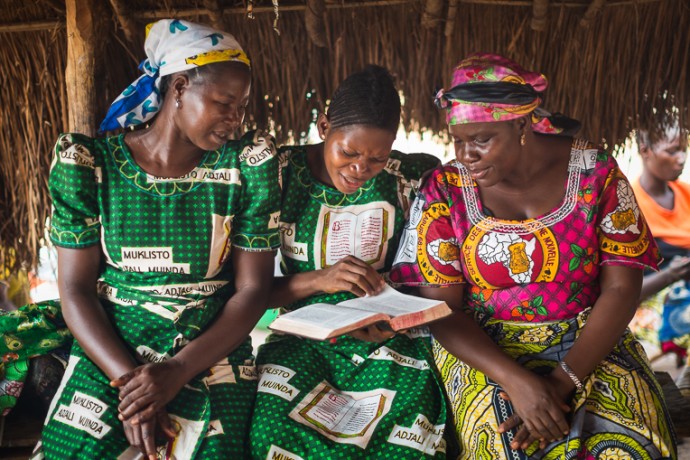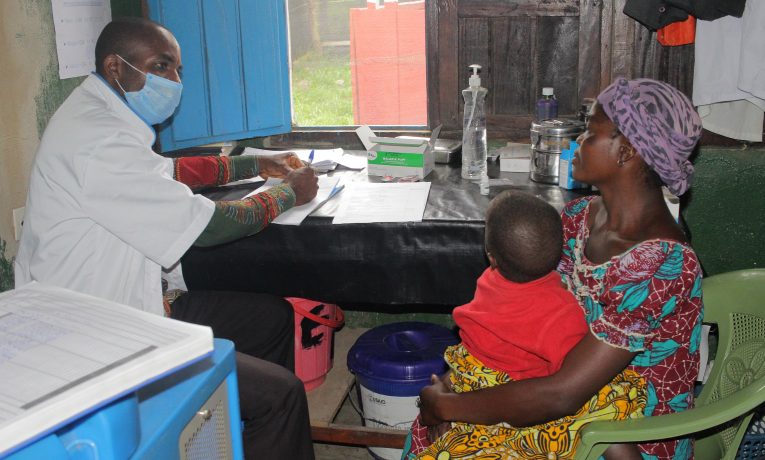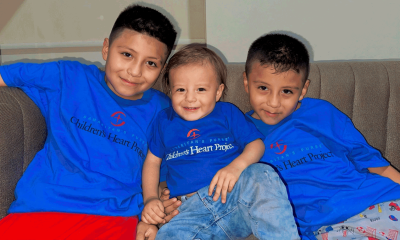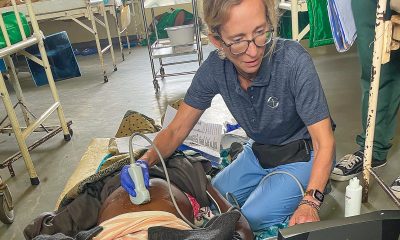Still shaken by the 2019 Ebola epidemic, the Democratic Republic of Congo is now rife with violence; but fleeing families are experiencing the love of God through Samaritan’s Purse medical projects.
One grave threat replaced another for Rebecca Nganabo, who was nearly two months pregnant when she was forced to flee her home in Ituri Province, an area in the northeastern part of the Democratic Republic of Congo (DRC).
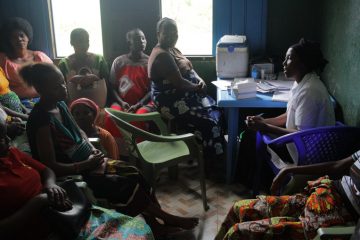
Mothers at the Shari Health Center receive training in how to care for their children and provide for their nutrition.
Rebecca and her family survived the deadly Ebola epidemic that killed more than 2,000 people in Ituri in 2019. But now that terror was being followed by an even more ominous horror. Stories were circulating throughout the Walu community where Rebecca lived about women who were attacked and raped in the fields where they worked, of others who were kidnapped, and of Congolese men and women who were murdered by armed groups. But the rumors of violent militia attacks soon became more than just local gossip. Soldiers were quickly closing in on Walu.
Rebecca, her mother, her husband, and her six children had no choice but to flee their beloved home and farm, joining the ranks of the more than 20,000 internally displaced people (IDPs) in Ituri. Across the DRC, there are an estimated 4.5 million people who have been forced from their homes for various reasons.
And like so many other displaced families, the Nganabos’ livelihood was disrupted and they struggled to survive without access to their farm, which they relied on to provide income and food for their family.
Fearing the Worst, They Experienced Love Instead
As Rebecca’s due date drew closer, access to quality healthcare in a safe and clean environment seemed impossible—especially in a makeshift camp that families fled to for their lives.
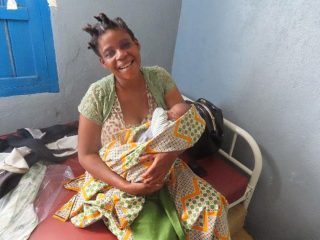
Rebecca Nganabo gave birth to a beautiful child at the Shari Health Center after fleeing danger and uncertainty months before.
But it was here in the town of Shari that Rebecca was introduced to a Samaritan’s Purse medical team who was helping to support the nearby local health center.
“Samaritan’s Purse came to help us just in time,” Rebecca said, who gave birth to a healthy baby.
Since the beginning of the most recent armed conflicts more than a year ago, Samaritan’s Purse medical teams have served displaced people as part of our Ebola Wrap-Around project. It’s the same medical network we helped equip, train, and strengthen during the Ebola crisis.
As part of the Ebola Wrap-Around project, Samaritan’s Purse is serving five health zones in Ituri Province, providing services that will help build community resilience against future disease outbreaks by improving water, sanitation, and hygiene (WASH) infrastructure and practices in health centers.
Through the project, we also provide training and coaching to Ministry of Health staff members who in turn provide a higher level of care, with costs covered by Samaritan’s Purse. In addition to learning more about diagnosis, treatment, and clinical procedure, Shari health center workers also received training in infection prevention and control (IPC), particularly in regard to Ebola and COVID-19.
Funding for the project also goes to support health centers financially.
“Samaritan’s Purse has made it possible for the health center to continue serving the community,” said Kabona Kisembo Joseph, head nurse of Shari Health Center. He said the center was finding it difficult to pay medical staff and provide essential services. “The partnership with Samaritan’s Purse made it possible for Shari Health Center to provide free medical care. Now, we treat more than 100 new patients every day.”
These patients often include severe cases of acute malnutrition, pneumonia, cesarean deliveries, and patients who need blood transfusions. The most complicated cases are referred to Rwampara General Hospital several miles away, with transport to the referral facility covered by the project.
”We Can Be Sure of Good Treatment”
“I was assisted in giving birth to my beautiful child [at the clinic],” Rebecca said. “People here have suffered a lot, but because of the Samaritan’s Purse staff at the health center we can be sure of good treatment.”
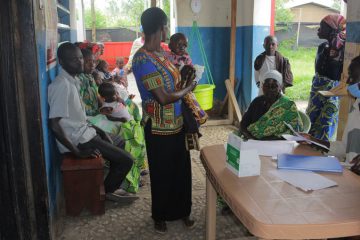
At the Shari Health Center, the staff receives patients from all over the eastern DRC where they’ve fled their homes and now live in nearby camps.
But the high level of treatment extends well beyond obstetrics and maternal child health. In addition to the more than 90 women each month who safely deliver children at the health center in Shari, our medical teams also care for hundreds of other patients, including those suffering from injury, malaria, and other dangerous but common diseases.
“We are called by God for this work, and many people in the community speak about the integrity of our work and the goodness of God because of what He has allowed us to do in their lives,” said Isaac Kitalaula, Samaritan’s Purse Health Coordinator in the DRC. “It is through the integrity of our work in Shari that we express the love of God to many suffering people.”
Since the beginning of the Ebola Wrap-Around project was launched in the area, the number of cases successfully treated at the Shari health center has increased from a few hundred to several thousand. This has strengthened the connection between Samaritan’s Purse and the community leaders, and has opened doors for the source of ultimate healing and hope—the Gospel of Jesus Christ.
